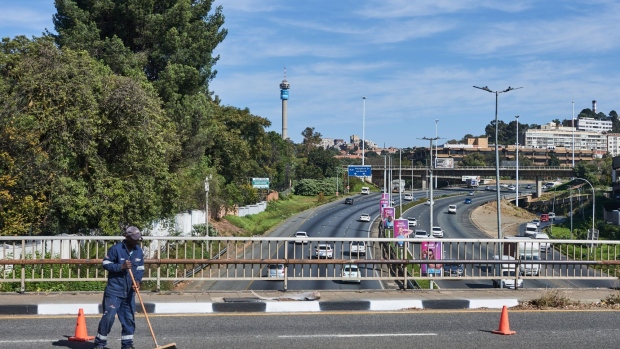Mar 18, 2024
South Africa Can’t Afford to Climate-Proof Its Infrastructure
, Bloomberg News

(Bloomberg) -- South Africa’s cash-strapped government can’t afford to fund the development of infrastructure that can withstand the impact of global warming and has to look beyond the national budget to come up with the money it needs, the country’s deputy finance minister said.
“The frequency of natural disasters and the results thereof are felt daily in South Africa,” David Masondo said at a conference in Johannesburg on Monday. “The fiscus cannot afford to financially support the amount of investment required for climate-resilient infrastructure.”
His remarks followed the signing of an agreement whereby the European Union will contribute 2 million euros ($2.2 million) toward an economic program in southern Africa that includes an infrastructure development component. The EU previously provided 673,378 euros in funding for a first phase of the program.
South Africa has experienced a significant rise in climate change-related natural disasters over recent years, with the eastern KwaZulu-Natal province and other areas experiencing devastating flooding on a more frequent basis.
Read More: How Scientists Link Climate Change to Extreme Weather: QuickTake
The government has undertaken various measures, including setting up an infrastructure fund that’s administered by the Development Bank of South Africa and includes a portfolio of blended finance projects, but more innovative funding mechanisms such as green bonds and carbon credits need to be explored to respond to climate change, according to Masondo.
The nation is constrained by its high levels of debt, a problem that confronts many other African nations.
“Africa as a continent needs an annual investment of $190 billion for its clean-energy transition,” Masondo said. “Fifty-seven percent of African countries are in debt and they’re spending so much money on debt-service costs” that they can’t undertake investments in climate change or in climate-resilient infrastructure,” he said.
©2024 Bloomberg L.P.






